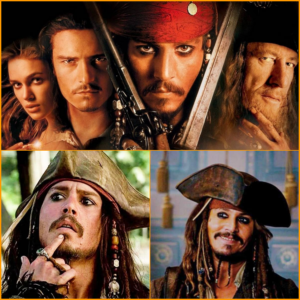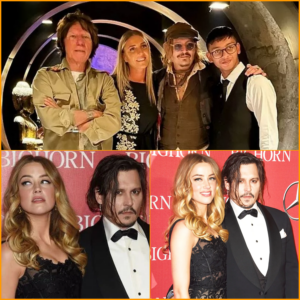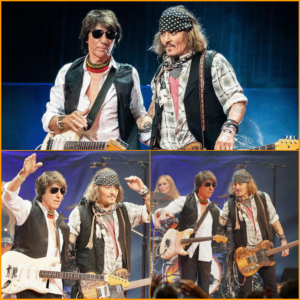Grammy Award-winning singer-songwriter Bryan Adams and Tony-winning director Jerry Mitchell said they have been eyeing a musical version of the movie Pretty Woman for years.
And now, almost 30 years after Julia Roberts and Richard Gere brough the 1990 rom-com to life on the big screen, the stage adaptation premieres March 13 in Chicago for a limited five-week release before it premieres in New York on Broadway this summer.
Adams and longtime collaborator songwriter Jim Vallance are scoring the musical, with Mitchell at the helm as director.
Both Adams and Mitchell stopped by Morning Shift on Tuesday to talk about their new project and the process of making it all come together.
The musical has been on Bryan Adams’ radar for almost a decade
Bryan Adams: About 2009, I approached Disney and asked them if they would be interested in doing something together, and they said they weren’t looking at doing that.

Bryan Adams, internationally-known music star, best-selling Canadian artist of all time and Jerry Mitchell, eight-time Tony nominated 2-time Tony winning Director and Choreographer (Hairspray, Legally Blonde, Kinky Boots and more) seen here at WBEZ studios in 2018. Jason Marck/WBEZ
I was dating a girl from the West End in London and she was the one who was saying, “You know what? Someone should make Pretty Woman: The Musical.” And I said, “That’s a really good idea.”
Movie director Garry Marshall gave the OK
Jerry Mitchell: Garry definitely wanted to see this movie turned into a musical. He was a huge fan of musicals and of theater. But I saw the film when it first came out 28 years ago and I knew, at that moment, it should be a musical.
Cut to today and I finally got a chance to sit down with Garry Marshall and Paula Wagner, our producer who shepherded the whole thing, and I convinced them that the best way to do it was like the others that I’d done: Kinky Boots, Hairspray, Legally Blonde, Dirty Rotten Scoundrels. Bring the movie to the stage with an original Broadway score, and so that’s where Bryan came in.
Writing the score with songwriter Jim Vallance the same as a record
Adams: It’s just songs, and it’s just music. Jim and I met in a music shop when I was 17 or 18, and the next day we sat down together and wrote a song. It’s been like that pretty much for 40 years now.
I look at [writing the score] the same way. The same way we would’ve written “Heaven” or something is the same way we’d write a ballad for the musical. The difference, perhaps, with the musical is you have a narrative, so you have a storyline you have to stick to, which kind of makes it easier.
You’ve got a roadmap, and it’s why I’ve always enjoyed working with film. That work was very similar to this work.
Big personalities adapted for the stage
Mitchell: For me, the film was very musical, just in the sense that the characters were larger than life. Vivian is a very larger-than-life character, so I’m looking for that — the same thing with Tracy Turnblad in Hairspray and Elle Woods in Legally Blonde.
And also characters who are vulnerable because I think that really lends itself to the stage beautifully. I think Pretty Woman is one of the greatest reinventions of the Cinderella story. The difference is, of course, she rescues him.
The actors made Adams’ songs their own
Adams: I’m always full of anticipation about how a song is going to be received. This is so different than anything I’ve ever done.
For example, if you’re a songwriter and you make records, you put all your heart and soul into making that record, and you release it, and it’s you.
In this case, I’ve written all my heart and soul into these songs, and I’m not singing them, and I’m watching other people deliver it.
I’ve already seen a lot of that go on in the rehearsals in New York, so a lot of my anticipation has been dampened by the fact that these guys are really good.
In many ways, they’ve interpreted the songs in ways I wouldn’t have, which has made them theirs. And that’s a good thing: You want people to embrace the songs and make it their own.
This interview has been edited for brevity and clarity. Click the “play” button to listen to the entire segment.
News
What you didn’t know about Johnny Depp’s guitar skills.
Beyond the silver screen and the allure of Hollywood’s glitz and glamor lies a lesser-known facet of Johnny Depp’s life – his profound passion for playing the…
The subtle clues Johnny Depp gave us about AH’s true nature
Times Johnny Depp Tried To Warn Us Johnny Depp is a man who has had a very interesting life in ways that are both funny, and sad….
The controversial poster of pirates of the Caribbean 6 starring Johnny Depp
There is a new Pirates of the Caribbean 6 poster that has gone viral online with a movie title listed as Pirates of the Caribbean: Demons of the Corsair. The…
Johnny Depp celebrates Amber Heard victory with £50K Indian banquet
‘Once in a lifetime moment’ at the Varanasi in Broad Street, Birmingham Hollywood star Johnny Depp was joined by his musician friend Jeff Beck, 77, and around…
Johnny Depp’s ‘favourite’ curry house Varanasi about to open in Leicester
Johnny Depp who is reported to have said ‘it was the best curry he’s ever had!’ Varanasi, a popular Indian restaurant is expanding from it Birmingham branch,…
How Johnny Depp and Rod Stewart showed their love for animals with a song
Johnny Depp and Sir Rod Stewart joined forces over the weekend to raise money for an animal charity based in Lewisham. The duo performed at a private charity…
End of content
No more pages to load











